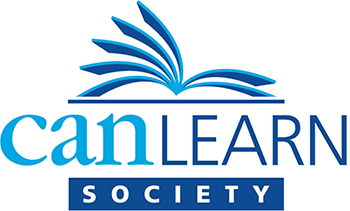A question for you:
If you had to describe how you are feeling during these unsettling days in just one word, what word would that be?
Stressed? Overwhelmed? Isolated? Insecure? Trapped? Anxious? Tired?
Positive? Optimistic? Hopeful? Good? Fine? Bored?
As we go through this time of social isolation, financial instability, risks to our health and more, it seems impossible to describe how we feel in a single word!
Last week, we asked this question to all adult learners in our programs. Many of them are struggling with what is the “right” way to feel right now. The goal of this emotional check-in was to ensure that our learners’ emotions are acknowledged by themselves and others. Mixed emotions are okay during uncertain times, and there is no “right” way to cope with a pandemic. Another goal was to highlight the importance of learning to maintain their emotional well-being.
Adult learning programs at CanLearn are built on an emergent curriculum approach. This approach focuses on being responsive to learners’ interests and needs and creating relevant and meaningful learning experiences. Our program facilitators have always been committed to this approach in their day-to-day work. Now, they have come to understand and appreciate it at an even deeper level. They know that it will go a long way in making sure that, once the shutdown is over, our learners come back to their in-person programs feeling positive and able to learn.
This blog intends to share instructional materials that we have used to help adult foundational learners in our programs not only to continue developing their skills in reading and writing but also to nurture their emotional well-being. They are based on current event articles, informational texts and human interest stories related to our “new normal.”
Reading
Keep in mind that, depending on your learners’ reading level, you may need to rewrite some of these articles in clear language.
- Where to Find and Apply for COVID-19 financial reliefs – Website
- Coronavirus New Words – Website
- More Coronavirus New Words – Website
- Scams Related to COVID-19 – Website
- Stop the Spread of Rumors – Website
- Humour and Coronavirus Anxiety – Website
- School’s Online – How Do I Help My Children Learn! – Website
- Panic Buying – Website
Writing
Writing can calm a worried mind. Encourage your learners to write about:
- How they spend their time.
- What advice they would give to others.
- How do they take care of themselves, mentally, physically, and emotionally?
- What they did to help someone and how it made them feel.
- What are they grateful for?
- What do they cook for their family?
- How do they play and learn with their children?
- Send notes of gratitude to health care workers, grocery workers, truck drivers, etc.
- Write sidewalk chalk messages of hope, support and resilience.
- What keeps them up at night?
- What are the possible silver linings of this situation?
Emotional Support
- Make a mix-tape song list with your learners as your soundtrack for these surreal times.
- Create a self-care challenge with your learners.
Other Tips
- Keep in regular contact with learners through phone, text, or email.
- Use simple tools such as Zoom, Skype, FaceTime, Google Hangouts, What’s App so that you can meet with your learners “face-to-face.”
- Send your session plan in advance as much as possible.
- Use texting for a supplement to instruction.
- Make sure that your texts and emails are short and written in clear language so that your learner can read it and respond to them.
- Coach learners to ask their Internet provider for deferred payment or reduced rates of service.
- Practice real-life questions and conversations; the more authentic the content is, the more valuable it will be for your learners.
Facilitating adult foundational learning from a distance is not perfect. It can be exhausting both for learners and program facilitators because it requires a lot more mental focus. There is something intangible about in-person learning that just cannot be replaced. However, learning through Skype or Zoom or FaceTime has become our reality in the upcoming weeks. As practitioners, we have to work out our practice and ensure the content of our programs remains relevant and authentic. We all must learn side by side with learners in our programs.
We will get past this.
It is tough, but we are going to be okay.
Stay safe and healthy. And stay home.
